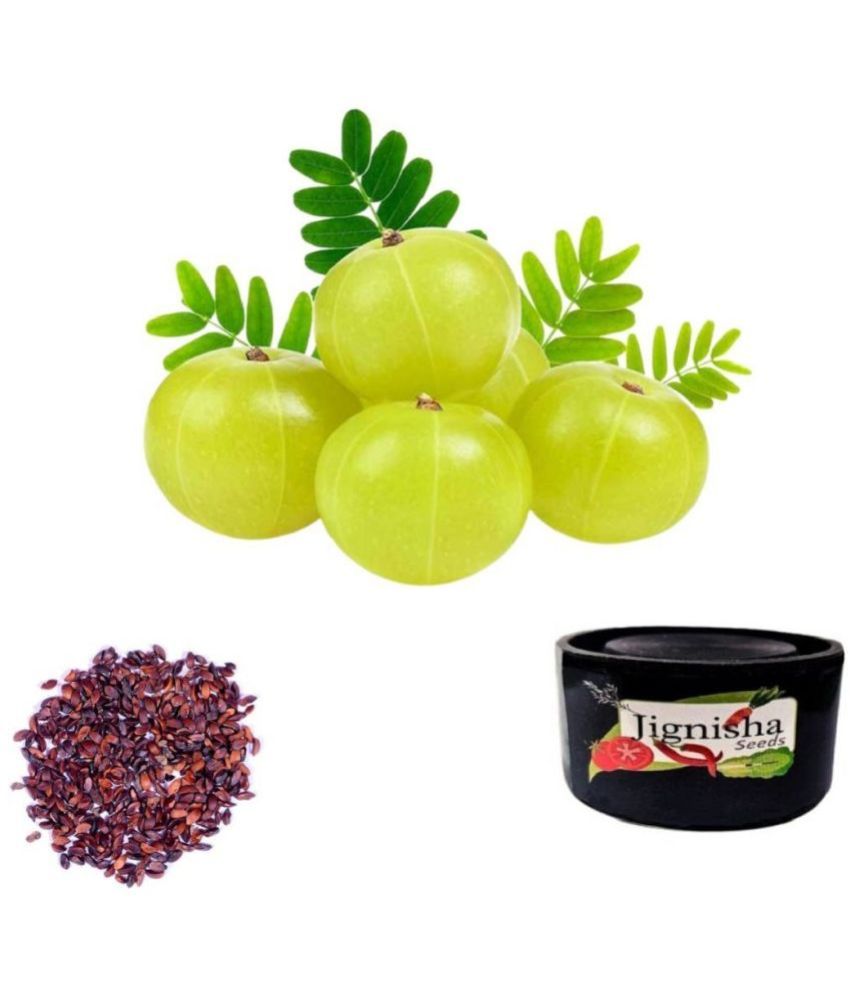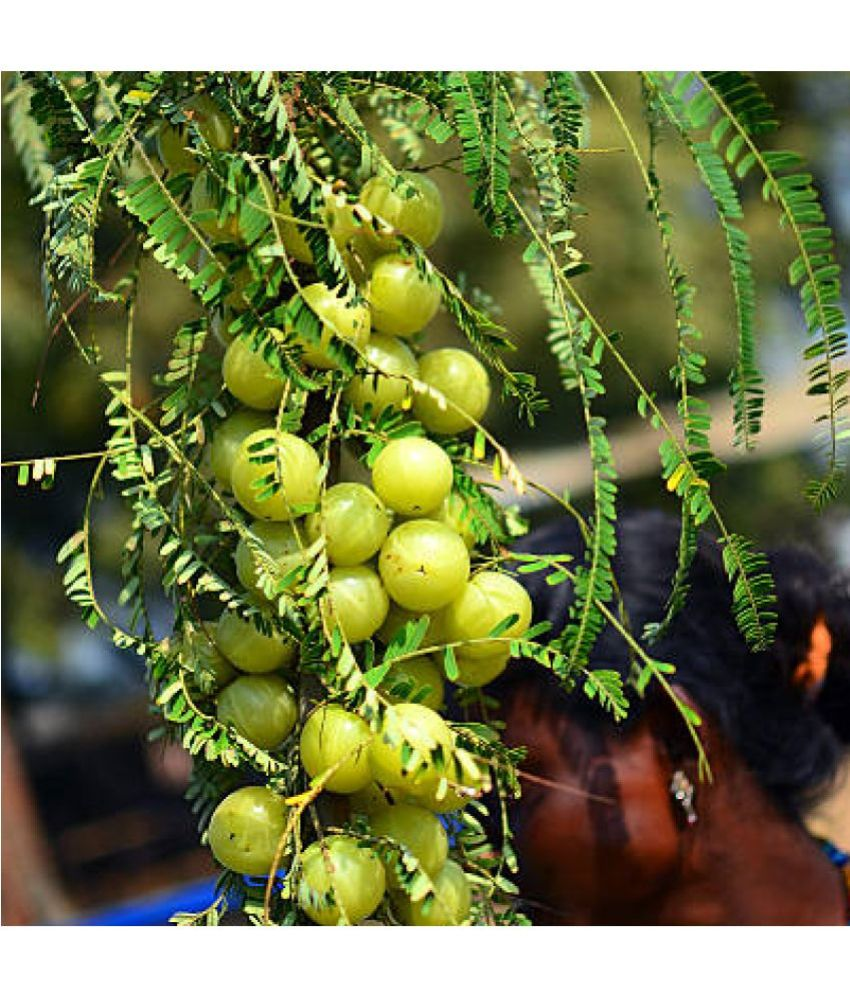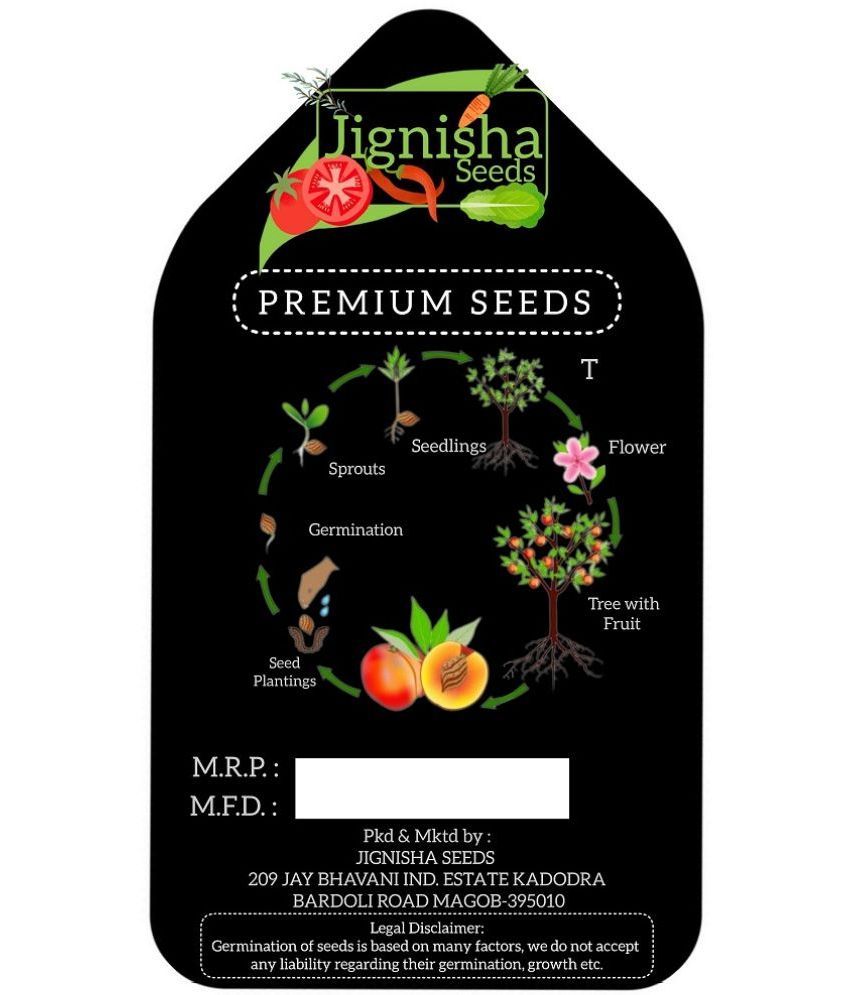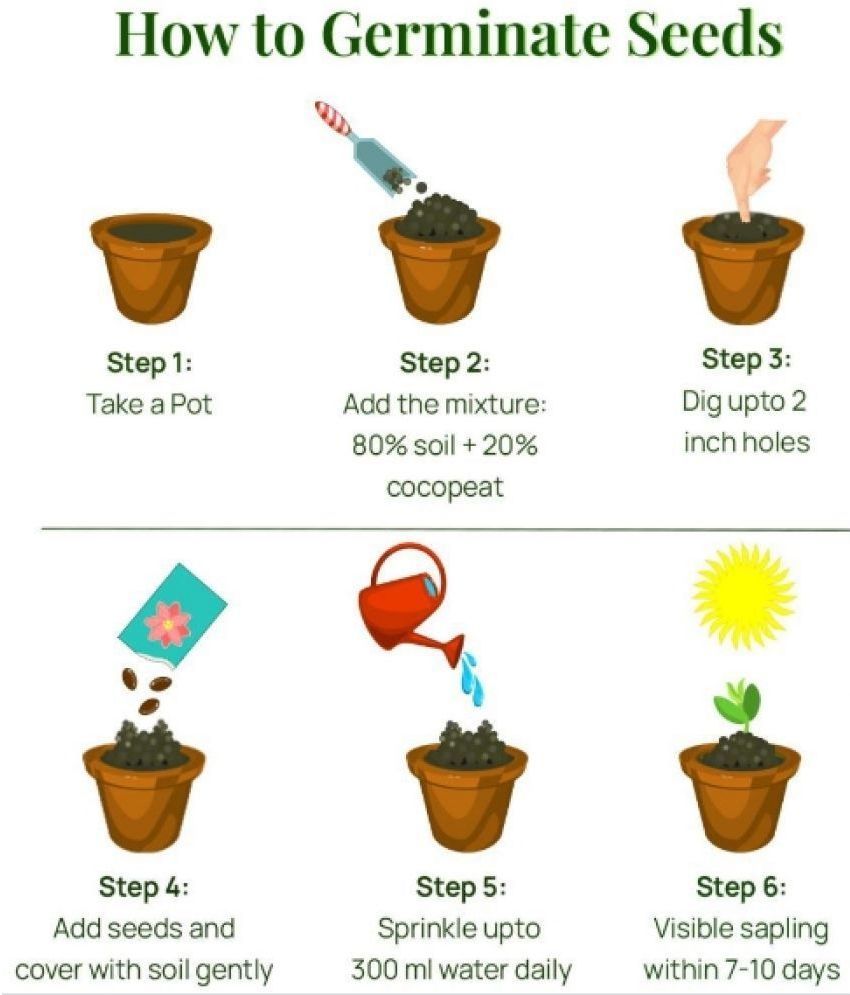Amla seeds are the starting point for growing the highly revered Indian Gooseberry (Emblica off
icinalis), known for its numerous health benefits and versatile culinary uses. These seeds produce hardy trees that yield small, round, greenish-yellow fruits with a distinctive sour taste and high nutritional value.
Key Features:
Variety: Amla (Indian Gooseberry, Emblica officinalis)
Seed Type: Non-GMO
Plant Type: Perennial
Growth Habit: Deciduous tree
Amla seeds are prized for their ability to grow into robust, medium-sized trees that produce abundant fruits rich in Vitamin C and antioxidants. The fruits have a tart, tangy flavor and are widely used in traditional , culinary dishes, and cosmetic products. The tree is valued not only for its fruits but also for its resilience and ability to thrive in a variety of soil and climatic conditions.
Growing Conditions:
Soil: Well-drained, sandy loam to clay loam soil with a pH of 6.0-7.5
Sunlight: Full sun, requiring at least 6-8 hours of direct sunlight daily
Watering: Moderate; water regularly but avoid waterlogging
Germination Temperature: 70-85°F (21-29°C)
Days to Germination: 15-30 days
Planting Instructions:
Seed Preparation:
Soak the seeds in warm water for 24 hours to enhance germination.
Optionally, scarify the seeds by lightly sanding or nicking the hard outer shell to facilitate sprouting.
Sowing Indoors:
Start seeds indoors 8-10 weeks before the last expected frost date.
Sow seeds ½ inch deep in seed-starting mix.
Keep the soil consistently moist and maintain a warm environment.
Transplanting:
Transplant seedlings outdoors once they have developed a strong root system and the danger of frost has passed.
Choose a sunny location with well-drained soil.
Space plants 15-20 feet apart to accommodate the tree's mature size.
Care Tips:
Fertilization: Apply a balanced fertilizer during the growing season to support healthy growth and fruit production.
Pruning: Prune young trees to establish a strong structure and remove any damaged or diseased branches.
Pest and Disease Control: Monitor for pests such as aphids and caterpillars. Use organic or chemical treatments as needed to protect your plants.
Harvesting:
Amla trees typically begin to bear fruit 3-4 years after planting.
Harvest the fruits in the late autumn to early winter when they are fully grown and slightly yellow-green in color.
Use gentle pressure to twist and pull the fruits from the branches.
Storage:
Fresh amla fruits can be stored in the refrigerator for up to two weeks.
For longer preservation, consider drying, pickling, or making amla preserves and chutneys.
Culinary Uses:
Amla fruits are highly versatile and can be used in a variety of ways:
Culinary Uses:
Made into chutneys, pickles, and jams
Added to curries and savory dishes
Used in juices and smoothies
Ayurvedic Uses:
Consumed raw or in powdered form for their health benefits
Used in Ayurvedic to for immunity, improve digestion, and promote hair and skin health
Additional Information:
Seed Packet Weight: Typically available in packets containing 30 seeds.
Shelf Life: Best used within 1-2 years of purchase for optimal germination rates.
Amla seeds are a fantastic choice for gardeners and farmers looking to grow a tree that offer nutritiona value. With proper care, these seeds will develop into fruitful trees that provide a bounty of healthful fruits year after year.





